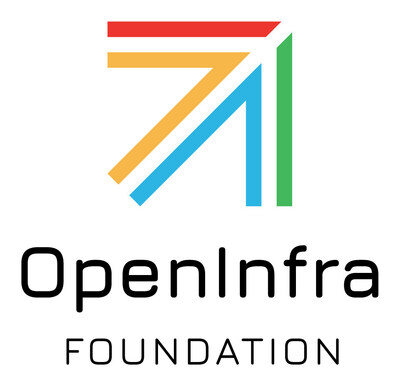
OpenStack, the world’s most widely adopted open source infrastructure software, is enjoying a surge in adoption, spurred by organizations seeking alternatives to VMware and open source stacks to support AI/ML workloads.
Also Read: CIO Influence Interview with Serge Lucio, VP and GM of Agile Operations Division at Broadcom
The OpenStack community today released 2024.2 Dalmatian, the 30th version of the world’s most widely deployed open source cloud infrastructure software. Around 500 contributors from organizations including Red Hat, Cleura, Mirantis, Walmart, BBC R&D, Blizzard Entertainment and NVIDIA built Dalmatian, delivering support for AI workloads, enhanced security, and improved user experiences among widespread maintenance updates. This release comes as the OpenStack market is estimated at $22.81 billion in 2024 and is expected to reach US$91.44 billion by 2029, growing at a CAGR of 32%.
OpenStack is currently experiencing a significant surge in adoption, attributed largely to the software’s popularity as a VMware alternative and its unique suitability for supporting artificial intelligence (AI), machine learning (ML) and other high performance computing (HPC) workloads. Another driver of OpenStack adoption is its integration with Linux and Kubernetes in the “Open Infrastructure Blueprint,” which empowers users to deploy container-based, virtual machine-based, and bare metal-based workloads in the same infrastructure.
With more than 45 million cores in production, OpenStack is embraced by thousands of users of all sizes and across industries, including many “mega-users” running a million cores or more.
***Learn more about OpenStack and its ecosystem of supporting organizations as well as other software projects supported by the Open Infrastructure Foundation (OpenInfra Foundation): Kata Containers, StarlingX and Zuul.***
“The upgrades, new features and maintenance work delivered in the Dalmatian release demonstrate a hallmark of the OpenStack community: its commitment to collaborating globally to address evolving technology needs,” said Thierry Carrez, general manager of the OpenInfra Foundation. “Also reflected in the Dalmatian release is the community’s determination to integrate with a wide variety of open-source tools and platforms as well as cutting-edge hardware. We want to thank all of the organizations and individuals who actively use and contribute to OpenStack, especially the 487 contributors who submitted 7,640 changes over the past six months to keep OpenStack powering advancement and innovation all over the world.”
***Skyline Now Available as Production-Ready, Next Generation Dashboard***
In Dalmatian, Skyline and its modernized web UI are now fully supported as part of the official OpenStack release. Previously released as a technology preview, Skyline is now production ready and has added new functionality in Dalmatian including support for Masakari, Designate and FWaaS, as well as several translations.
Also Read: The Role of SmartNICs in AI-Centric Datacenters
This milestone comes as the global ecosystem is eyeing Skyline as their dashboard of choice to provide an improved end user experience. In August 2024, Rackspace announced their newest service, Rackspace OpenStack Enterprise, which includes Skyline as the dashboard instead of Horizon.
“At Rackspace, we are all about simplifying the management of cloud systems. OpenStack Skyline, with its intuitive and user-friendly interface, simplifies the complex task of managing cloud services. It creates beautiful administrative experiences allowing users to manage services at scale, with ease and efficiency,” said Kevin Carter, product director at Rackspace.
“When we set out to create our new OpenStack product offerings, we were driven by the need to enhance the administrator experience and showcase OpenStack’s strengths. With its responsive design and user-friendly interface, Skyline significantly reduced navigation time, presented information in more human-readable formats, and created a modern, cutting-edge experience when consuming cloud resources. For organizations leveraging OpenStack, like us, Skyline was the clear choice for the future. The Skyline development team has created an incredible cloud interface with top-tier performance and efficiency. We’re excited about Skylines official release, the positive impact it will have on our customers’ OpenStack experience, and looking forward to contributing to its future success.”
***Support of AI & HPC Workloads***
Dalmatian advances OpenStack’s support of AI and HPC workloads. For example:
- Blazar introduced support for reserving compute instances based on existing Nova flavors. This can be used to provide reservation of GPU instances.
- In Nova, with the libvirt driver and libvirt version 7.3.0 or newer, mediated devices for vGPUs are now persisted across reboots of a compute host. This offers more convenience and efficiency improvements for users of hardware accelerators, many of whom currently may be training AI systems.
***Security***
Security enhancements are a common theme in many OpenStack Dalmatian components. Highlights include the following:
- Ironic has enhanced multiple security aspects. For example, it now requires rescue passwords to be hashed, it has reduced the logged nodes information during the cleaning phase to avoid showing sensitive data, and it has hardened the communication between the Ironic services and the Ironic agent requiring an HTTPS URL by default. In addition, Ironic now allows users to perform firmware updates on active nodes with the firmware interface, using the redfish driver firmware update feature as a service step. This can be used to facilitate applying firmware security patches.
- Neutron has added manager role support to its APIs, meeting the next phase of the Secure RBAC community goals.
- Nova now automatically detects virtual Trusted Platform Module (vTPM) support for compute services if libvirt version is above 8.0.0 and if swtpm is installed on the node. It will also automatically get the TPM models that are supported. In addition, Nova users can now require Transport Layer Security (TLS) connections for SPICE consoles.
***User Interface Enhancements***
OpenStack Dalmatian showcases several ways the community continues to adapt the software to enhance usability. These features are key for organizations who are migrating from VMware to OpenStack.
For example:
- Ironic has added runbooks, a new API concept to enable self-service of maintenance items on nodes by project members. Runbooks are curated lists of steps that can be run on nodes only associated via traits and used in lieu of an explicit list of steps for manual cleaning or servicing. They also follow RBAC rules, allowing projects to limit who can maintain and use a runbook.
- Manila: Users now have the ability to manipulate storage capabilities through shared metadata. Cloud operators can determine which capabilities are updatable, and users are then notified about the status of the updates through asynchronous user messages.
***Simplification of OpenStack Upgrades***
In 2022, the OpenStack community adopted a once-a-year SLURP release cadence designed to ease the demands upon operators to upgrade every six months. OpenStack Dalmatian is a “not-SLURP release,” which means it is offered in the six-month interim of annual SLURP releases expressly for those who wish to upgrade more frequently.
***The OpenStack Dalmatian release is available for download.***
***For a more detailed list of Dalmatian release features, please see the release highlights.***
***Learn More: Watch OpenInfra Live Tomorrow***
At 14:00 UTC (9 am CT) tomorrow, Thursday, October 3, OpenInfra Live will be dedicated to OpenStack Dalmatian. The discussion will feature:
- Riccardo Pittau, Ironic
- Carlos Silva, Manila
- Sylvain Bauza, Nova
- Goutham Pacha Ravi, Technical Committee
[To share your insights with us as part of editorial or sponsored content, please write to psen@itechseries.com]


